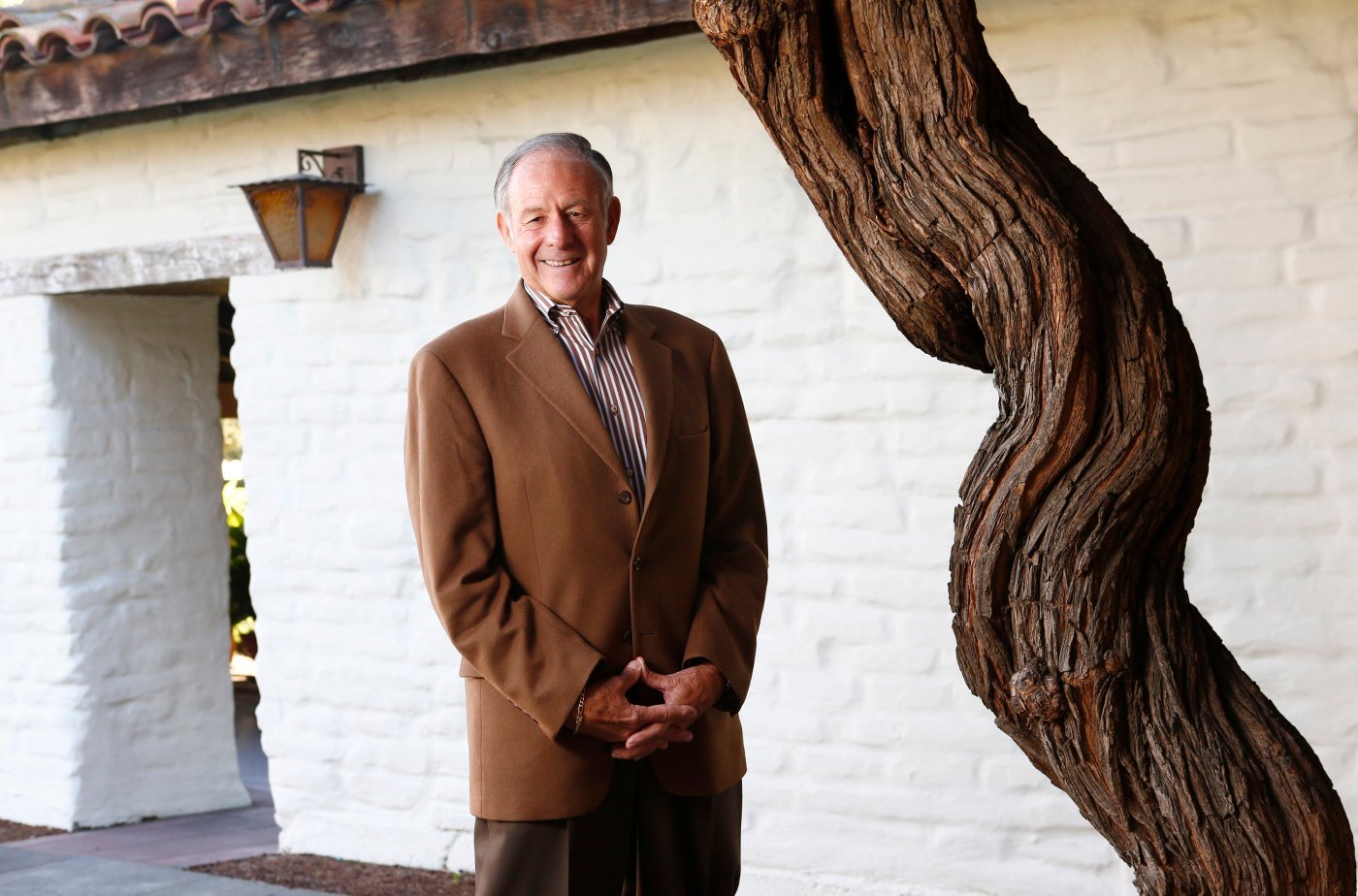Construction is underway on 75 tiny home shelters for homeless people at a South San Jose property owned by billionaire Silicon Valley developer John A. Sobrato.
Sobrato agreed to lease the 2-acre lot, at Via del Oro and San Ignacio Avenue near Highway 85, to the city for $1 a year over the next decade. He proposed the idea after learning about the challenges officials have faced finding viable shelter sites as the city works to bring thousands of unhoused residents indoors.
“We live in an area with the greatest concentration of wealth in the world,” Sobrato said at a ground-breaking event Wednesday. “It’s known as the center of innovation. We ought to be able to figure out how to solve this issue.”
The Via Del Oro site, the city’s latest tiny home location, will accommodate around 150 people in shared cabins and is expected to be completed in the coming months. Homeless people living within a 1.5-mile radius of the site will then be offered a bed, after which the city will clear any remaining encampments and establish a two-block “no-return” zone in the area.
Unlike traditional dorm-style group shelters with strict rules and little privacy, “interim housing” facilities such as tiny homes aim to provide residents with a more stable and welcoming environment so they can take advantage of supportive services and get help finding permanent housing. At Via Del Oro, residents will have access to private bathrooms and be able to move in with their partners and pets.
“It’s all about getting people stabilized faster and connected to the supportive services that enable them to reclaim some control in their lives again on the path to self-sufficiency,” said Mayor Matt Mahan, who’s also pushed recent encampment bans near schools and along the Guadalupe River downtown.
But with a severe shortage of available affordable housing, moving people from interim housing to lasting homes is often a challenge. Of the roughly 1,500 homeless people who’ve stayed at the five interim tiny home sites the city has built over the past three years, about half have found permanent housing, and 70% remained off the street, Mahan said. The city has around 500 interim beds in total.
Last year, officials counted roughly 4,400 unsheltered residents in San Jose, a more than 10% drop from 2022. Mahan has pointed to the decline as evidence the city’s interim housing strategy is working, despite criticism from some homeless advocates who say officials should put more resources toward permanent housing.
Erecting the Via del Oro site is expected to cost the city about $13.4 million, or roughly $89,000 per bed. Mahan noted that’s a fraction of the price tag of building permanent affordable housing, which can cost nearly $1 million a unit in San Jose. The nonprofit developing the site, DignityMoves, will also contribute around $2.8 million in private donations to cover construction costs.
Opening new shelters may cost less than building affordable housing, but keeping the sites up and running could be expensive in the long run. Earlier this year, San Jose estimated that if it follows through on plans to add about 700 more interim units, total operational expenses could soon exceed $70 million annually, about twice the current cost.
Related Articles
San Jose is doubling down on RV safe parking lots for homeless people. Is it helping?
A new California bill could provide cash to homeless high school seniors
Affordable housing project with 64 units for homeless people opens in downtown San Jose
Walters: Newsom critical of California’s local response to homelessness. Look in the mirror
As budget cuts loom, Bay Area big city mayors urge Newsom to spare homelessness funding
Mahan has argued the expense is worth it, especially when considering the financial impact of homelessness on first responders and emergency rooms, contending each unsheltered homeless person costs the city about $65,000 a year.
At Wednesday’s event, Dignity Moves CEO Elizabeth Funk said that if San Jose continues scaling up interim options, it could spur officials to designate more neighborhoods as no-encampment zones.
“This city is committed to making sure that there are enough dignified interim housing options for people so no one needs to resort to, nor would they be allowed to, suffer unnecessarily on our streets,” she said.












